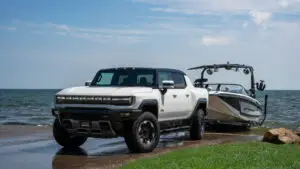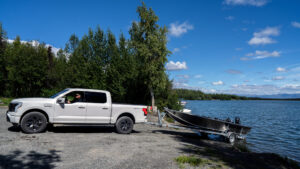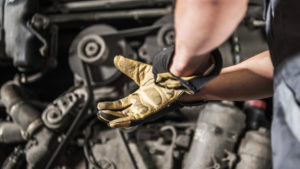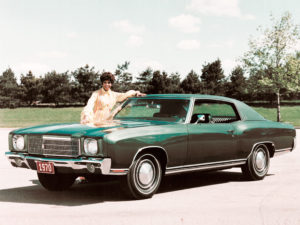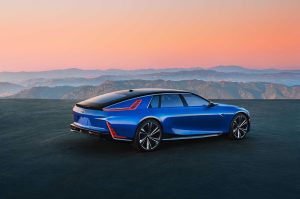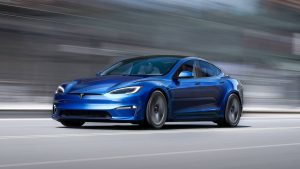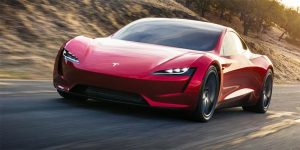It began like many of my work weeks begin. This one was slated to include five flights, provide the opportunity to drive two new vehicles and participate in the red-carpet-like reveal of another, finish flight training for my private pilot’s license, and take the required final “check ride” after three and a half years of study, before returning home after 18 days.
For some, these metrics are unfathomable. For many automotive journalists, this schedule is simply the way we show up to the office and conduct life. For me, the goal of becoming a private pilot along the way seemed an achievable aspiration. It was both fun and hard. It involves challenge and some risks. Just like life.
I knew this trip could be different. I did my homework. By this point, I was well-educated about the coronavirus and its worldwide trajectory. After a slow start in the U.S., I also knew that COVID-19 had picked up its pace.
I read a New York Times email newsletter concerning the virus as it hit my inbox and studied a multitude of news sources. I queried and listened to friends and colleagues. Some discouraged travel. Others said “go”.
I knew things were already changing in our country. I knew my path could change. I had no idea how quickly it would.
No one was so much as coughing on my two flights to Texas on March 11. Years of being on the go in remote areas has taught me to travel with a veritable medical kit as well as extra gear and goods. I had hand sanitizer, hand wipes, and two masks. I thought I had my ducks in a row.
Delta is just one of the airlines taking measures to clean their planes between flights.Photo courtesy of Delta Airlines, John Paul Van Wert
News came at a rapid-fire pace from two close friends late in the day on Monday, March 16, as I was filming a flight training video in the small community of Vernon, Texas. I grew more and more worried as the reports grew more and more ominous.
There were no positive cases of the virus in Vernon. Despite the shortage of toilet paper, water and hand sanitizer, and the news that ammunition was sold out, life seemed normal in this rural swath of the Lone Star State, in an area known for its authentic cowboy culture and where crops, cattle, and ranches dot the roadside.
When I had completed my test drives of 2020 Nissan Titan and 2020 Titan XD 200 miles south of Vernon in Midlothian, just three days previous, life still seemed somewhat normal.
Then the next leg of my trip, which was to take me to Los Angeles, was abruptly cancelled. Not a surprise.
My daughter had called my first evening away with concerns about my well-being and the worry for her father and in-laws; we are all post-60. My age put me at an elevated risk of contracting the virus.
I kept checking various apps and reading all the advisories friends were texting me links to. Flights were being cancelled left and right. The way home was getting less direct and harder to figure out.
I already knew by now that I did not want to take the risk of traveling on two airplanes and through three airports to get back home (that’s the quickest way to go). But, I assumed that I would complete my flight tests and return home in a relaxed fashion.
Suddenly, I found myself as a pilot and professional test driver who stays in motion for a living, stuck in place in North Texas.
I made a call to a longtime colleague at Nissan who offered to provide me with a 2020 Nissan Pathfinder Rock Creek Edition so I could drive home to Massachusetts from Texas with far less risk than what a commercial airline, Amtrak, or a Greyhound bus could offer.
Road signs across the U.S. have been advising drivers that they should not be gathering in groups.
Photo by Getty Images
“Get in your car and start driving now,” my friends directed. “It’s all changing fast,” they said. “Travel is getting riskier and restaurants and travel centers are closing. San Francisco has ordered new rules, New Jersey has a curfew—just go…please!”
According to the mapping app on my smartphone, the trip was projected to be a 26-hour drive of approximately 1,700 miles.
I was packed in 15 minutes. I had a navigation system in the Pathfinder and used it to be directed to nearest gas station in a small town to the north, then mentally made note of a rudimentary version of the directions presented to get me through seven states.
I was prepared to sleep in the car and not stop at restaurants along the way. My flight training instructor had thrown a blanket and pillow in the back seat and helped me pack water and food.
This was an extreme journey, but not the type of extreme I was used to. I’ve traveled to over 70 countries, raced more than 30,000 miles around the globe, been trained by some of the world’s top survival skills experts, spent a month on slogs through the wilds of Borneo and Mongolia (just to name a few). I was once airlifted to Libya “for safety”. I was on a team that was shot at in Thailand. I hid in a vehicle in the brush nine miles from the Algeria border for an overnight, when my co-driver and I were lost during a race in Morocco.
This was different. The enemy is invisible to the naked eye and the path forward was clear.
During my first hour-long, self-imposed full-stop at 11:30 p.m. the first night, I fueled the Pathfinder, used the facilities at a truck stop and, after hand washing and a couple of touch-base texts, locked myself into the SUV. Hunkering down in second-row seat, under the bright lights of safety and near a collection of motorhomes and big rigs, I shut down my brain that was full of questions.
Was I already infected? Would I get sick? What would happen if I became ill along the drive home? What would be my resources if I had an accident or issues with my vehicle along the route? Exhaustion overcame the answers. Prayer settled the night.
Rested after a 40-minute sleep, I hit the road again. This was not a pleasure trip and I knew I needed to keep moving. By 3:30 a.m., my driving became less-than-perfect. Unlike most other models in the Nissan lineup, the Pathfinder doesn’t yet have available advanced technology like the ProPilot suite of safety and driver assistance tech that is available in the Nissan Altima and Rogue.
Roadways across America have far fewer cars than normal thanks to travelers staying home to help flatten the curve.
Photo by Getty Images
Pulling in to another fuel stop, I used the washroom to clean myself and used packed supplies to clean up few key touch points of the car and my credit card. Back to the second-row seat for more sleep. As I appreciated that my small stature made the seat feel like a twin-sized bed, I laughed at the notion of what ex-Nissan CEO Carlos Ghosn would think. He being the man who made worldwide news for sneaking out of Japan in a bassoon case.
Exactly 40 minutes later, my body woke me up naturally and I was back on the road. SiriusXM satellite radio became my lifeline as boredom set in. I found myself singing my way down the highway.
I ventured outside of my usual favorite channels and discovered Ecuadorian music from the highlands, Franco music that waltzed its way into my heart in French stanzas, and the news from CNN, and new-to-me me Fox (for equal measure), along with Doctor Radio, which was completely devoted to deep dives into medical news and has now become the coronavirus information channel.
Sunrises and sunsets have delivered some of the greatest joy in my life. When the morning light painted the world around me on Tuesday, I was midway through Missouri, having traveled through Texas and Oklahoma, and was nearing the Indiana border. It brought the vigor of a case of energy drinks and I began to know that I would remember the moment of this sunrise forever.
Charming signs, stunning vistas, and an ongoing picturesque collection of America’s barns delighted my senses as I made my way through the Heartland. For periods of time, I forgot the woes of the present and simply remembered my blessings.
With the sunrise came the dawn of a new day – the game had changed and the outlook is uncertain.Photo by Sue Mead
Navigating the roads was a bit surreal. The traffic, or lack thereof, was one of the unforeseen circumstances of the pandemic. It seemed as if Americans were heeding the road signs I kept seeing. Some were on overpasses or at the roadside, in electronic boxes where weather conditions, safety notices, and amber alerts are projected. A few were on rudimentary sandwich-board signs that typically direct travelers to specials at hotels and restaurants or deals for oil changes and new tires. “Stay home”. “Stop the spread”. “Save lives”. “Flatten the curve”.
Five hours from home, the orange orb of the setting sun illuminated my outside mirror. By now, I knew how much I didn’t know. How would the world change? What would happen to me and my loved ones? Was my career over? The dark of night was approaching and all I knew was this: it was a new day. From here, forward.
Another road sign flashed “Stay home”. Now I couldn’t wait to get there.
Editor’s Note: Mead has returned home safely and soundly to her family in Massachusetts and is not exhibiting any symptoms commonly attributed to Covid-19.


